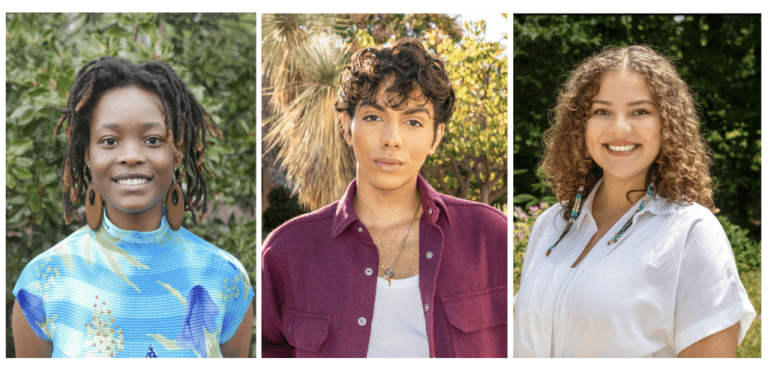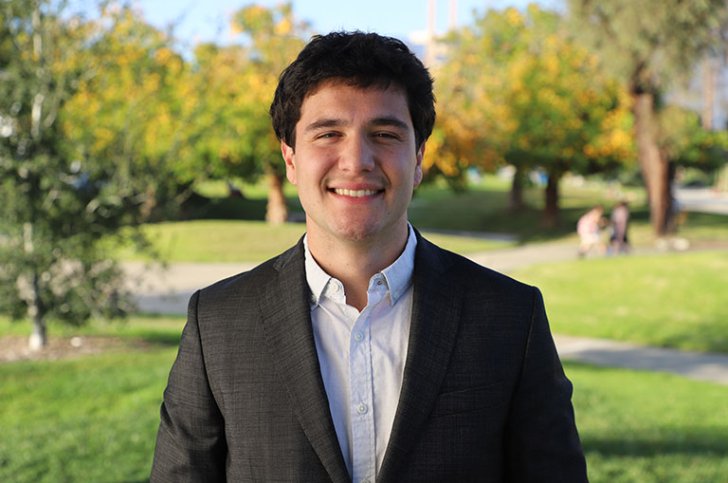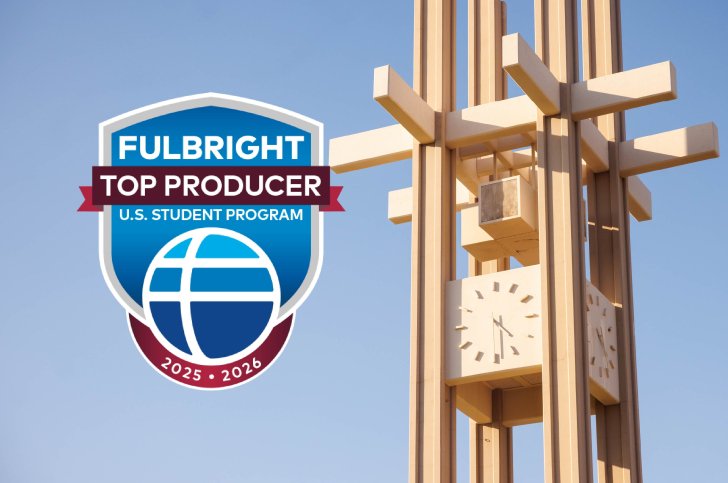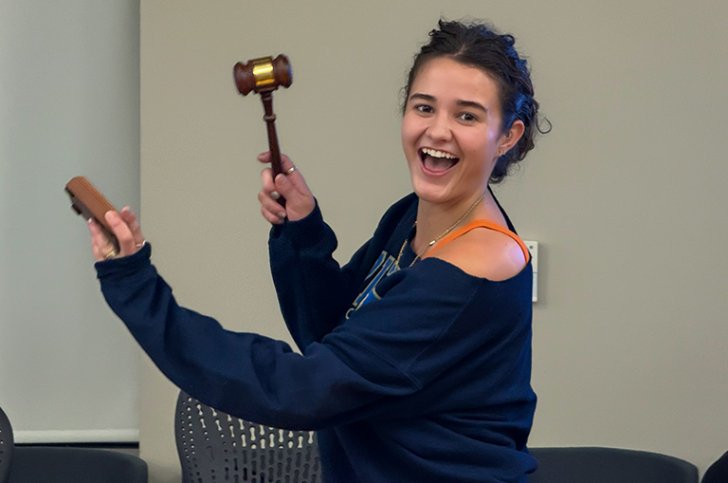Student Projects Honoring Indigenous Learning and Memory Receive Projects for Peace Awards
Pitzer students win Project for Peace Awards


Taeya Boi-Doku’s ’24 work on Afroecology and an oral history project developed by Jansikwe Medina-Tayac ’25 and Alexander Rodriguez ’24 have been awarded 2024 Projects for Peace awards in recognition of their efforts to promote peace and understanding.
Each award includes $10,000 in support of their efforts to implement and complete the projects.
The Projects for Peace program evolved from the vision of philanthropist Kathryn W. Davis, who challenged tomorrow’s promising leaders to find ways to “prepare for peace.”
The program invites undergraduates from more than 90 U.S. colleges and universities that participate in the Davis United World College Scholars Program to design grassroots projects that promote peace.
Gardens as “a living library”
An environmental analysis major, Boi-Doku is concerned with the loss of knowledge about Ghanaian indigenous foods and their cultivation, medicinal plants, and traditional agricultural techniques.
Boi-Doku’s project, “Reclaiming Afroecology: Indigenous Technology and Food Sovereignty,” seeks to reconnect this severed link in traditional knowledge by creating and implementing four agroforestry gardens (ranging in size from one-eighth acre to 1 1/2 acres) across two sites.
In addition to partnering with the Asaase Yaa Eco-Village in a rural part of Mankrong in Ghana, Boi-Doku will advance the project on her own undeveloped, privately owned land in Abokobi, which is a suburb of the country’s capital, Accra. Boi-Doku also has been awarded a 2024 Napier Award for this work.
“I want the physical gardens to serve as a living library for community members,” Doi-Boku said, “and for my seed bank partner to use the space to practice growing and understanding these foods in community.”
She considers these sites as more than just sources of physical nourishment; she sees a spiritual dimension to them, too.
“I want the gardens to be a place for elders to come and share their knowledge and be recognized for their wisdom,” she said. “I want the project to bolster and inspire other people and organizations to embrace the diverse indigenous plants that have been overlooked and undervalued in recent history and to get curious about food as a continuation of cultural identity.”
A tree of oral histories
While Boi-Doku is concerned about the diminishing of Ghanaian knowledge, fellow winners Medina-Tayac and Rodriguez are concerned with another kind of loss.
Their project, “The Mama Ceiba Peace Project,” seeks to record oral histories that document the formation of women’s indigenous identities and culture throughout the Dominican Republic.
The project is named for the Ceiba Tree, an important aspect of Taíno mythologies whose long branches hold up the sky while its roots provide caves and shelters for ancestral spirits called Cemís.
Medina-Tayac and Rodriguez hope to capture the essence of the Ceiba Tree through the cinematic documentation of Taíno women’s stories of cultural resilience, practice, and hope.
Incorporating this symbolism into the project has added layers of cultural responsiveness and helps to emphasize the spiritual and syncretic practices of the project’s participants in the face of colonialism, tourism, and cultural erasure.
News Information
Published
Organization
- Office of Fellowships


